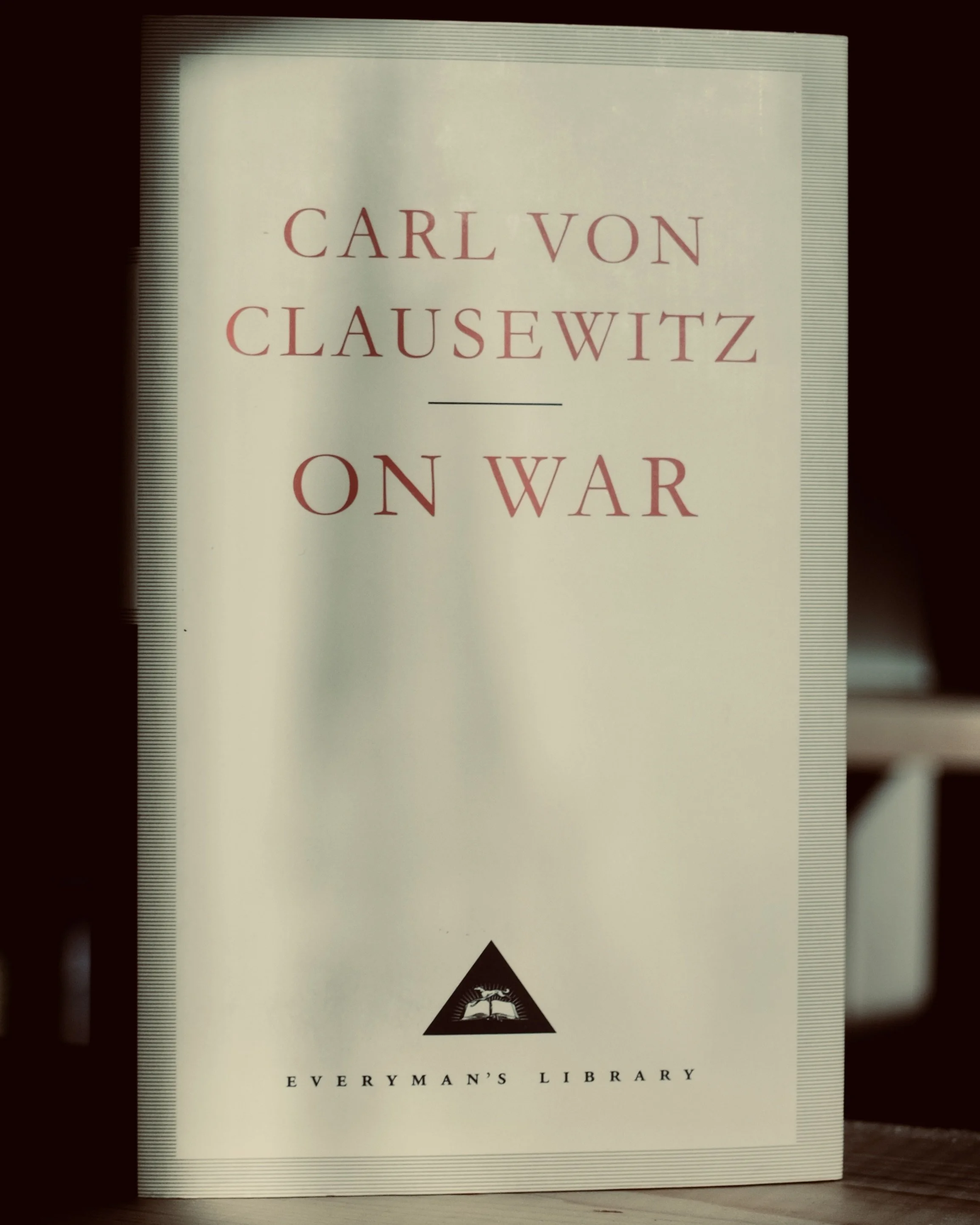The Enduring Anarchy
: Clausewitz's Uncomfortable Truths About War, Politics, and Command
In an era of relentless information cycles and the constant clamour for certainty, the insights of Carl von Clausewitz, particularly from the foundational first chapter of his monumental On War, offer a bracing and inconvenient truth. Published posthumously, this Prussian general's masterpiece, a sprawling meditation on the nature of armed conflict, strips away romantic notions and strategic delusions, revealing war for what it fundamentally is: a profoundly human, deeply political, and inherently uncertain endeavour.
For anyone under the illusion that modern warfare, with its reliance on algorithms, drones, and precision strikes, has somehow sterilised or simplified the battlefield, Clausewitz’s opening salvo is a stark reminder. He grounds war, not in the predictable laws of physics, but in "living and with moral forces." This isn’t simply a poetic flourish; it’s a categorical rejection of any theory that pretends to offer absolute certainty. The battlefield, Clausewitz reminds us, is a maelstrom of unforeseen circumstances, unexpected outcomes, and, crucially, the utterly unpredictable nature of human behaviour under unimaginable pressure. Attempting to eliminate this intrinsic uncertainty, he argues, is not merely futile; it is a dangerous delusion.
This pervasive ambiguity places an extraordinary burden upon the commander. If the fog of war is indeed impenetrable, what hope can there be for decisive leadership? Clausewitz, ever the pragmatist, identifies two indispensable qualities for a commander hoping to emerge "unscathed": intellectual insight and moral courage.
Intellectual insight, in this context, is not about encyclopaedic knowledge or academic brilliance. Rather, it's a penetrating faculty of mind that can discern truth "even in the darkest hour." It's the ability to cut through the noise, the conflicting reports, the fear, and the chaos to grasp the essential reality of a situation. It's a fundamental clarity of perception that separates the truly gifted military mind from the merely competent.
Yet, seeing the truth is only half the battle. The commander must also possess the moral courage to act upon it, "to follow this faint light wherever it may lead." This is where Clausewitz distinguishes himself from simplistic notions of bravery. Personal courage – the willingness to face physical danger – is undoubtedly present. But a higher, more demanding form of courage is vital: the courage to accept responsibility. This is the willingness to bear the consequences of one's decisions, to face criticism, and to live with the potential cost of failure. It is this moral fortitude that allows difficult, unpopular, but necessary decisions to be made in the high-stakes crucible of war.
Perhaps Clausewitz's most enduring, and indeed revolutionary, contribution in this chapter is his insistence on the subservient relationship of war to politics. This is not mere academic musing; it’s a radical re-evaluation that challenges the very notion of war as an autonomous entity, a beast unleashed from its political cage. For Clausewitz, war is fundamentally a political instrument, a means to achieve political ends.
The political objective, therefore, is not an afterthought; it is the genesis and the guiding star of any conflict. It dictates "both the military objective to be reached and the amount of effort it requires." A skirmish fought over a border dispute will, or should, demand a vastly different commitment of resources and a distinct military approach than a war for national survival. Military objectives, while seemingly distinct, must always serve this greater political purpose, sometimes acting as leverage for future negotiations, other times as a direct path to the desired political outcome.
This leads to his famously distilled dictum: "war is not merely an act of policy but a true political instrument, a continuation of political intercourse, carried on with other means." War is not a rupture from politics; it is simply another, albeit violent, mode of political engagement. The clash of interests and wills, the very essence of politics, continues, merely expressed through bloodshed and destruction. To forget this, to allow war to deviate from its political purpose, is to descend into senseless brutality.
Finally, Clausewitz forces us to confront the nature of the enemy. War is not a unilateral exercise; it's a dynamic interplay between combatants. Defeating an adversary requires a nuanced understanding of their capacity for resistance, which he breaks down into two intertwined elements: their tangible "means at disposal" – the troops, equipment, infrastructure – and, crucially, the intangible "strength of their will." The latter, representing the enemy's motivation, determination, and morale, is often the more formidable obstacle. And in confronting this adversary’s will, the commander’s own determination becomes paramount, a bulwark against "the agonies of doubt and the perils of hesitation."
Some might argue that the sheer, unbridled violence Clausewitz describes has been tempered by modern ethics and international law. Yet, he cautions against such facile assumptions. He argues that despite societal advancements, the core impulse – the desire to destroy the enemy – remains fundamentally unchanged. The invention of ever more efficient instruments of death hasn't moderated this impulse; it has merely provided more effective means of its execution. This is a chilling, a brutally honest, and frankly, a necessary perspective on the enduring barbarity that underpins even the most 'civilised' conflicts.
Book 1, Chapter 1 of On War is not merely an introduction to military strategy; it is a profound philosophical statement on the nature of human conflict. It challenges our comfortable assumptions, demands intellectual rigour, and underscores the vital importance of both piercing insight and steadfast moral fortitude in those who would lead us into – or out of – the inferno of war. Clausewitz’s truths, however uncomfortable, remain as relevant and urgent today as they were two centuries ago. Ignore them at your peril.
Citations
Clausewitz, Carl von. On War. Edited and translated by Michael Howard and Peter Paret. Princeton University Press, 1976. (Specifically, Book 1, Chapter 1).
Event Portfolio
Street Portfolio



